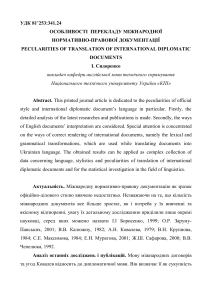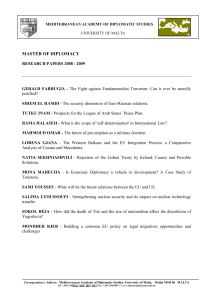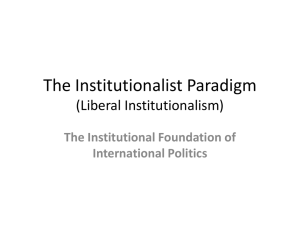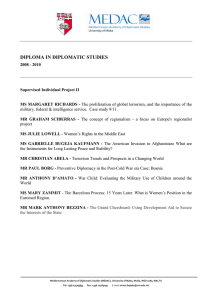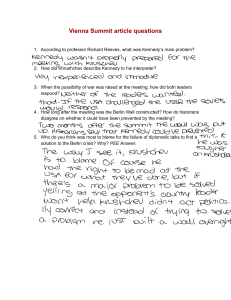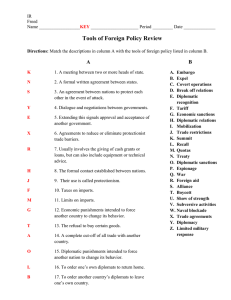Conference Diplomacy & Vienna Convention Functions
advertisement
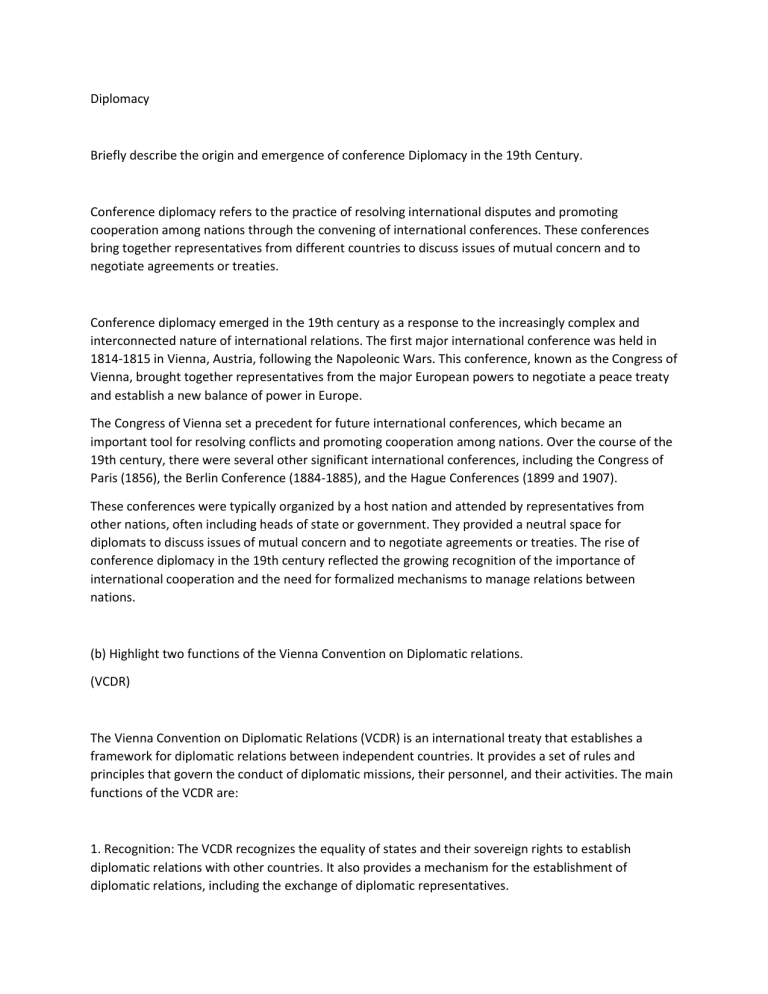
Diplomacy Briefly describe the origin and emergence of conference Diplomacy in the 19th Century. Conference diplomacy refers to the practice of resolving international disputes and promoting cooperation among nations through the convening of international conferences. These conferences bring together representatives from different countries to discuss issues of mutual concern and to negotiate agreements or treaties. Conference diplomacy emerged in the 19th century as a response to the increasingly complex and interconnected nature of international relations. The first major international conference was held in 1814-1815 in Vienna, Austria, following the Napoleonic Wars. This conference, known as the Congress of Vienna, brought together representatives from the major European powers to negotiate a peace treaty and establish a new balance of power in Europe. The Congress of Vienna set a precedent for future international conferences, which became an important tool for resolving conflicts and promoting cooperation among nations. Over the course of the 19th century, there were several other significant international conferences, including the Congress of Paris (1856), the Berlin Conference (1884-1885), and the Hague Conferences (1899 and 1907). These conferences were typically organized by a host nation and attended by representatives from other nations, often including heads of state or government. They provided a neutral space for diplomats to discuss issues of mutual concern and to negotiate agreements or treaties. The rise of conference diplomacy in the 19th century reflected the growing recognition of the importance of international cooperation and the need for formalized mechanisms to manage relations between nations. (b) Highlight two functions of the Vienna Convention on Diplomatic relations. (VCDR) The Vienna Convention on Diplomatic Relations (VCDR) is an international treaty that establishes a framework for diplomatic relations between independent countries. It provides a set of rules and principles that govern the conduct of diplomatic missions, their personnel, and their activities. The main functions of the VCDR are: 1. Recognition: The VCDR recognizes the equality of states and their sovereign rights to establish diplomatic relations with other countries. It also provides a mechanism for the establishment of diplomatic relations, including the exchange of diplomatic representatives. 2. Protection: The VCDR affords diplomatic agents and their families a special status and protection under international law. This includes immunity from civil and criminal jurisdiction, freedom of movement, inviolability of their residences, and exemption from taxes and customs duties. Conclusion In conclusion, the Vienna Convention on Diplomatic Relations plays a crucial role in maintaining diplomatic relations between independent countries. It provides a set of rules and principles that govern the conduct of diplomatic missions, their personnel, and their activities. The VCDR promotes international cooperation and understanding, protects diplomatic agents and their families, establishes channels of communication, and includes provisions for the settlement of disputes.
